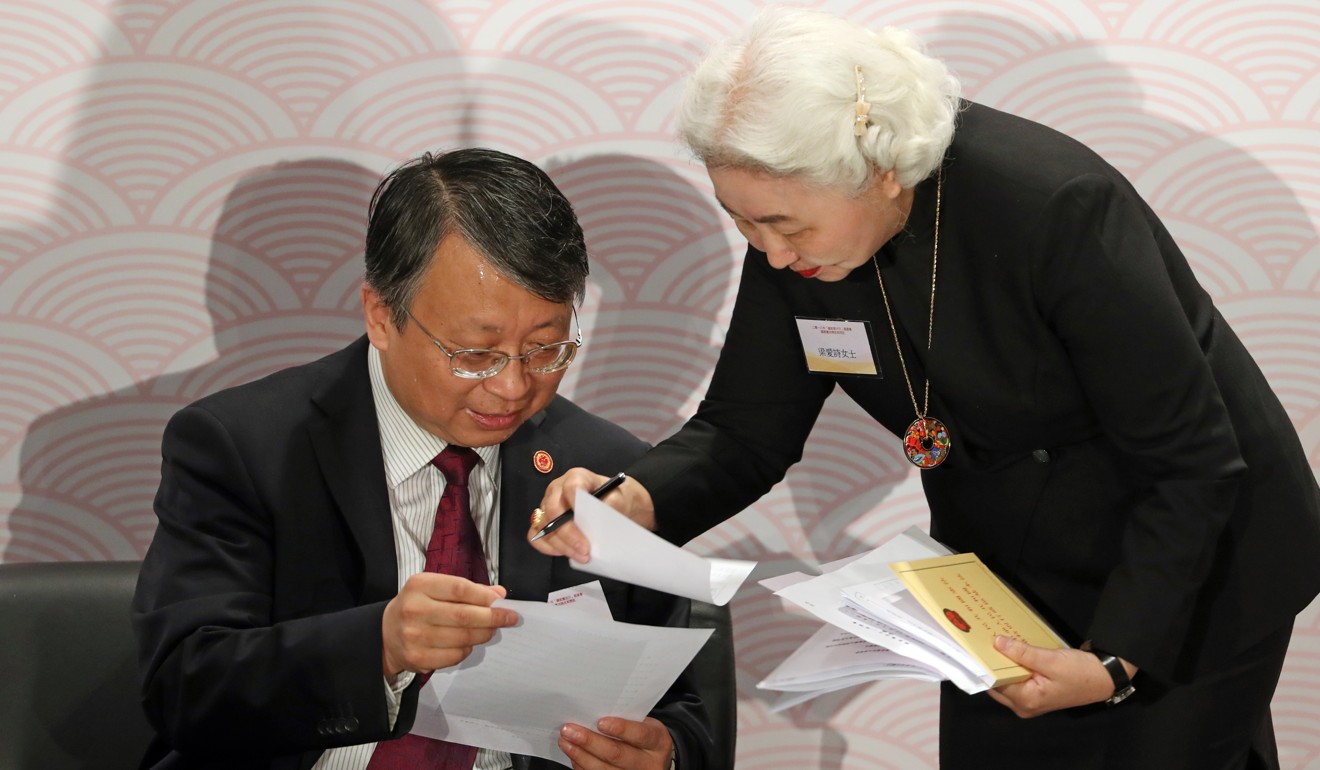
Hong Kong’s Basic Law may be a child of China’s constitution, but it has come of age
- Cliff Buddle says the precise relationship between China’s constitution and Hong Kong’s de facto constitution can be debated in academic circles, but let’s not forget that the Basic Law exists to protect the Hong Kong system
Three hundred Hong Kong schoolchildren gathered last week for a law lecture with a difference. The city’s leader also attended the class, along with ministers. The teacher was Shen Chunyao, a senior official from the Chinese government and his topic was the importance of China’s constitution.
The forum, however, comes at a time when a long-standing debate about the application of China’s constitution to Hong Kong has been reignited.
Shen, chairman of the Basic Law Committee and the Legislative Affairs Commission of China’s top legislative body, the National People’s Congress Standing Committee, said the authority of China’s constitution extended to Hong Kong, and all Chinese people, including Hongkongers, should ensure its implementation.

Shen described the constitution as having a mother-son or higher-lower relationship with the Basic Law.
The Basic Law provides that Hong Kong is an inalienable part of China. But it also protects free speech and the right to stand in elections
This is the constitutional underpinning for Hong Kong’s Basic Law. The implication is that the systems which operate in special administrative regions will be different to those applying elsewhere in China. The systems to apply in Hong Kong, the first SAR, were set out in the Sino-British Joint Declaration in 1984, which provided for the city to return to China but for its way of life to remain unchanged for 50 years.
The Joint Declaration made it clear that the system which would operate in Hong Kong after the handover in 1997 would be very different to the one in mainland China. The city would maintain its capitalist system, rather than the socialist system provided for in the constitution. It would have a high degree of autonomy, an elected legislature, a common law legal system, and human rights would be protected. Hong Kong would control its own finances, have its own freely convertible currency, remain a free port and a separate customs territory. This is the essence of Hong Kong’s separate system.
It was evident when the Basic Law was drafted in the 1980s that it would necessarily conflict with key parts of the Chinese constitution, which provides for a socialist system in mainland China. Indeed, the whole point of the Basic Law is to ensure that the systems and policies applying in Hong Kong are different to those provided for in the constitution.
That decision did not resolve the conflicts. But it laid to rest any suggestion that those differences somehow made the Basic Law unconstitutional.
Shen said: “All Chinese people, including Hongkongers, and all state institutions have to safeguard the dignity of the constitution and ensure its implementation.” He added: “Any acts that jeopardise national sovereignty and security, and challenge the authority of the central government and the Basic Law, will be deemed to have touched the bottom line, and will absolutely not be tolerated.”
If the precise relationship between the constitution and the Basic Law remains a matter merely of academic debate, there is no reason why it should have an impact on the delicate relationship between Hong Kong and the central government. Reference to the importance of the constitution should not be used as a justification for eroding Hong Kong’s separate system under the Basic Law.
There is no reason why the Basic Law and the constitution, while conflicting, cannot coexist
The Basic Law provides that Hong Kong is an inalienable part of China. But it also protects free speech and the right to stand in elections.
There is no reason why the Basic Law and the constitution, while conflicting, cannot coexist. The Basic Law might be the child of China’s constitution but it has now come of age. Twenty-one years have passed since it came into force.
Cliff Buddle is the Post’s editor of special projects

